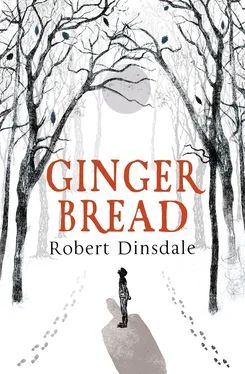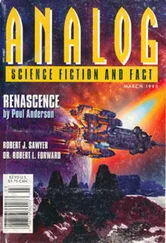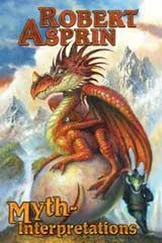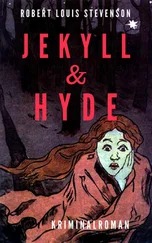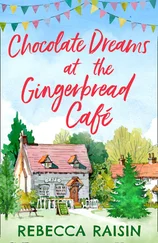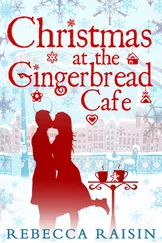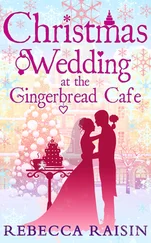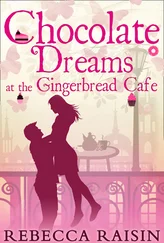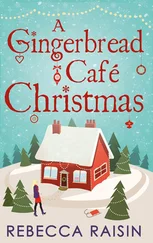Time slows down. The hands of the clock drag, each tick tolling with a tortuous lag.
There come three short raps, of hands knocking at the front door.
Yuri spins around, as if caught in some mischief. ‘But my stepfather isn’t home until the weekend!’
It is panic that seizes Yuri, as he endeavours to tidy the room, but the boy sits still and listens to Yuri’s mother crossing the flat to answer the door.
‘Come in,’ she says – and he hears, once again, the click of those jackboot heels.
After that, he knows what is coming. There is nowhere to run, and hiding would be useless. Yuri’s mother appears again in the doorway. She does not speak, but a soft look in her eyes compels the boy to stand and follow her, back through the flat, into the living room where the door stands open, with winter flurrying up in its frame.
There stands Grandfather. His white hair is emboldened by ice, and his whiskers carry their weight as well. In that frozen mask his eyes are piercing bolts of cobalt. He wears gloves through which bitten fingers show.
The boy goes to him, stalls, goes to him again, crossing the flat’s endless expanse in a stuttering dream. ‘Is she in hospital again?’ he says, with a tone that some might say is even hopeful.
Grandfather steps forward with clicking jackboots, crouches, and opens his greatcoat to put old and weathered arms around his grandson.
‘No, boy,’ he whispers with the sadness of mountains, of winters, of empty tenement flats. ‘No, boy, she won’t be going to hospital ever again.’
On the ledge by the window, its underbelly lit up by slivers of light shooting up through the floorboards: the little Russian horse that was a present from his mother.
It is cold in the tenement, and has been cold throughout the long, empty days. The boy counts them in his head: five, six, seven days since the jackboots clicked on the frigid metal stair, their steps tolling out the news. Now, with his eyes lingering on the little Russian horse, he waits for their clicking again. Today there has been nothing to do but wander up and down the hall, brooding on every photograph of the long ago, wondering at such things as soldiers and jackboots and guns.
When headlights roam the road outside, the Russian horse is trapped, monstrous, in the sweeping beams. The boy creeps up, as if he might peep over the ledge and look into the street below, but the creature leers at him and he is not brave enough to come near. He turns back, meaning to sit on his haunches in the corner of the room, but the horse’s shadow dominates the far wall. The boy starts, turns back to the tiny wooden toy just as the headlights pass on. Now, it is just a flaking Russian horse again, with its painted eyes and preposterous eyelashes, its ears erect like a fox, a twisted little creature he must always look after, no matter how malevolent it has become in the week since mama disappeared.
It is only when the headlights are dead that the boy goes to the window. On tiptoes he can heave himself up and look out onto the tenement yard. Mama’s car is parked at an awkward angle, one wheel up on the kerb. Ice still rimes the windscreen, so that the driver must have driven half-blind. Inside, a little heart of light glows.
When Grandfather appears, he is clutching a brown parcel to his breast. He takes off, but does not lock the car behind him. Soon, after he has crossed the tenement yard, he disappears from sight. The boy listens out for the click of his boots on the concrete. Then, he drops from the window ledge, upending the little Russian horse, and creeps to the bedroom door.
He will, he decides, make Grandfather a hot milk.
In the hallway, the photographs stare at him, and he in turn stares at mama’s door. He has not been through since the night Grandfather brought him home from Yuri’s, but he knows that Grandfather goes in there at night – not to sleep, but to make the sad baby bird sounds that the boy has started to hear after dark. Inside, a lamp burns; the boy can see the light in the sliver under the door. He drops to his hands and kneels and presses his nose to the crack, like the pet dog he has never been allowed. He thinks: I’ll smell her still, in the air trapped like a tomb. But all he draws into his nostrils is dust and carpet strands.
He is in the kitchen, with the milk pan rattling on the stove, when he hears the familiar click of Grandfather’s heels. A key scratches in the lock, and a flurry of cold air tells him that Grandfather has come in.
Quickly, he fills the mugs and ferries them to that place where the rocking chair sits before the dead gas fire. In the chair, mama’s shawl is sleeping, curled up like a cat.
A voice flurries down the hall, ‘You should be in bed.’
How Grandfather knows he is there, he cannot tell.
‘I know.’
‘Couldn’t you sleep?’
Grandfather appears in the alcove, ruddy face still glistening from the cold. He looks different tonight. He has taken off his overcoat to reveal a slick black suit underneath. Grandfather has never looked as smart as he does in the suit, but it is a sad thing to see a man look so smart. His tie is done up tight and it bunches the loose skin of his neck, leaving a horrid red line like a scar. His hair has oil in it and is combed so you can see every strand. He has had a shave and all of his whiskers, once so prickly and wild, have gone.
‘I see you made the milk.’
‘It was to ward off winter.’
Grandfather’s face cracks in a smile. ‘Like in the story!’
It was one Grandfather told him on the night mama died, of the peasant boy Dimian and his forest home, and how he loved to take his fists to his neighbours and would do almost anything to tempt them to a fight.
Grandfather shuffles into the alcove, and, like a mouse afraid of being trampled, the boy scrambles out of the rocking chair to make space. Before Grandfather settles, though, there is the fire to be made. He keeps the brown paper package nestled in his arm and bends to turn a gauge. Then there is a match; a spark flies up, and the fire is lit.
‘Come on, we can have a biscuit. I don’t think she’d mind if you wanted a biscuit, would she?’
‘Even late at night?’
‘Well, it’s a special kind of night.’
Grandfather retreats to the kitchen, returning with the package under one arm and a biscuit tin in the other. Inside are ten pieces of gingerbread with decorations carved into each: ears of wheat curling around a ragged map, and a star with five points hanging above.
The boy is reaching in with a grubby paw when Grandfather stops him.
‘Maybe we should share one.’
Really, the boy would rather have one all for himself. These are special ones, made with honey, not like the ones with jam you can buy in the baker’s. He feels distinctly more hungry just to see one.
‘Can I have one for my own?’
‘No,’ says Grandfather. ‘They have to last.’
It doesn’t matter, in the end, because Grandfather has just a tiny corner, and the boy can suckle on his piece all night. It is rich and sticky in his mouth, coating his gums so that he will be able to taste it all the way to morning.
‘Did mama make the biscuits?’
Grandfather nods. ‘There’s nine more.’
‘Can I have another?’
‘No.’
He doesn’t ask why. Even so, he realizes he’s being especially careful not to make crumbs.
After a great, honeyed silence: ‘What was it like today, papa?’
Grandfather nestles, and might be readying himself for another fable.
This isn’t the tale , he begins, but an opening. The tale comes tomorrow, after the …
‘Papa, please.’
‘It was quiet, boy. Snow on the cemetery. They brought your mama in a black car. I wanted to lift her down myself but she was too heavy. So the men from the parlour had to help me.’
Читать дальше
